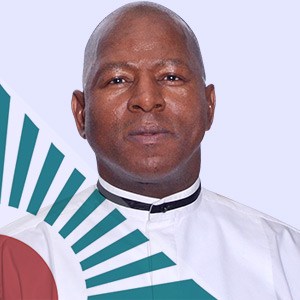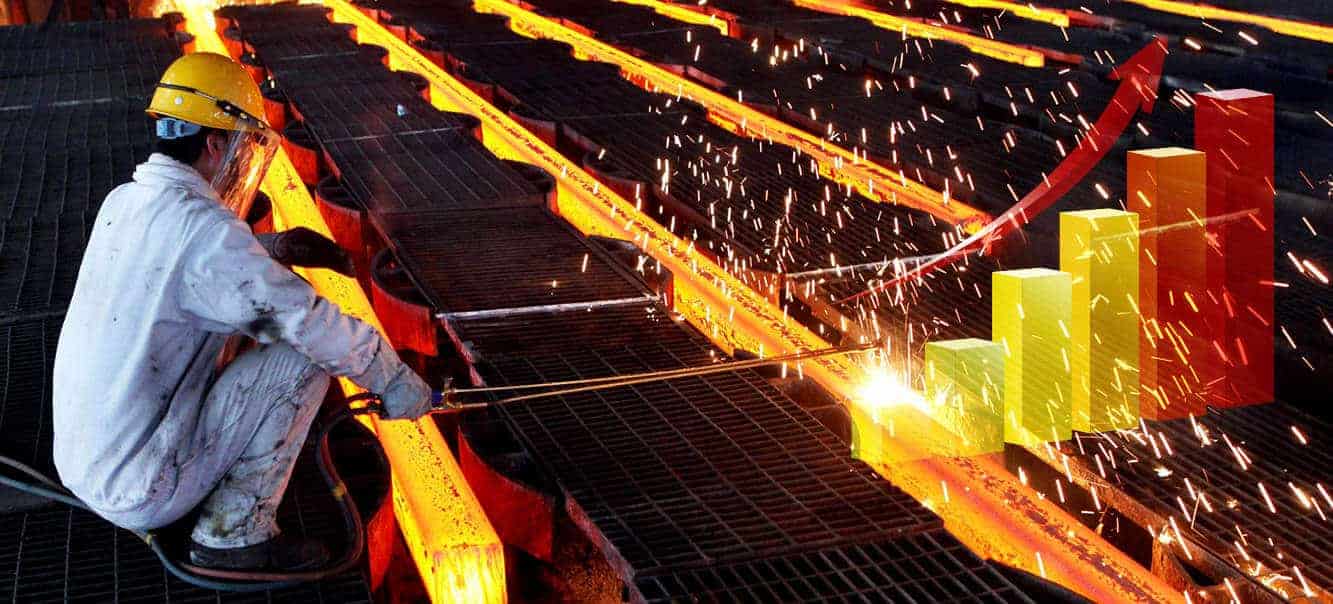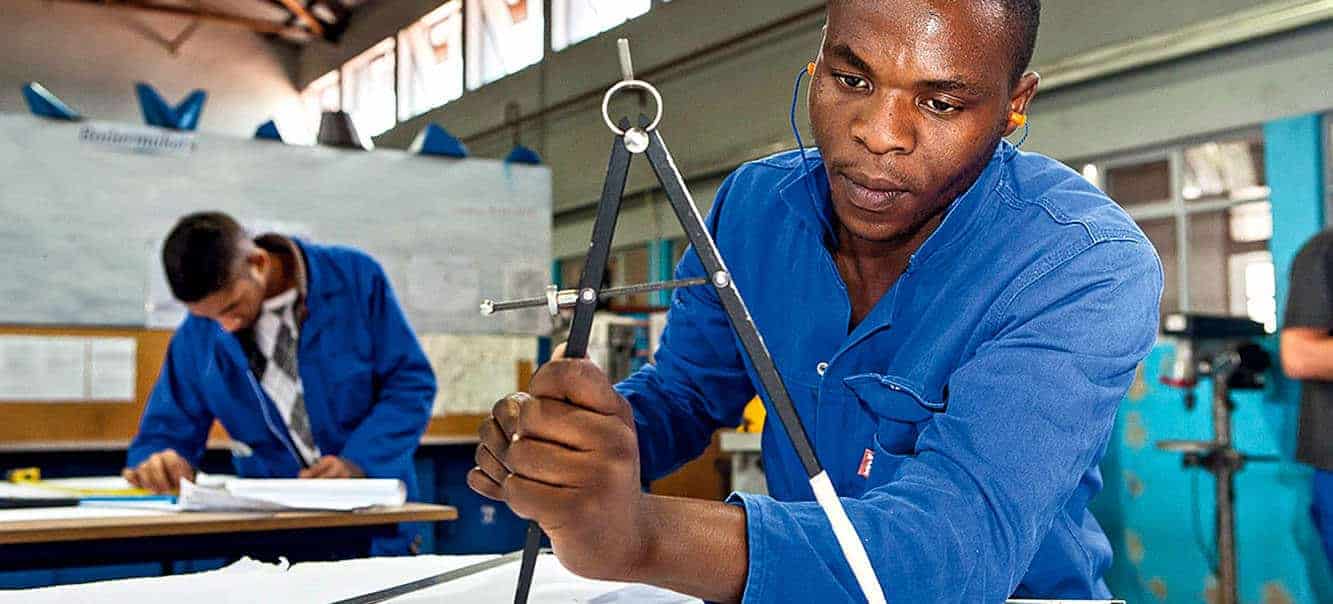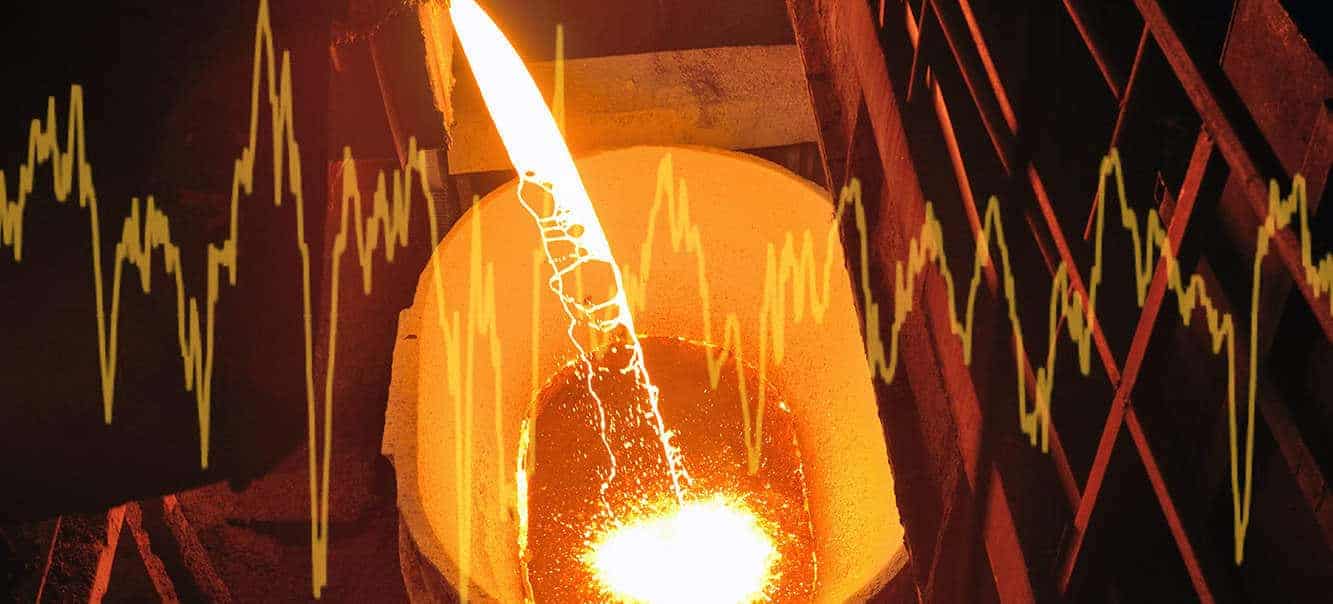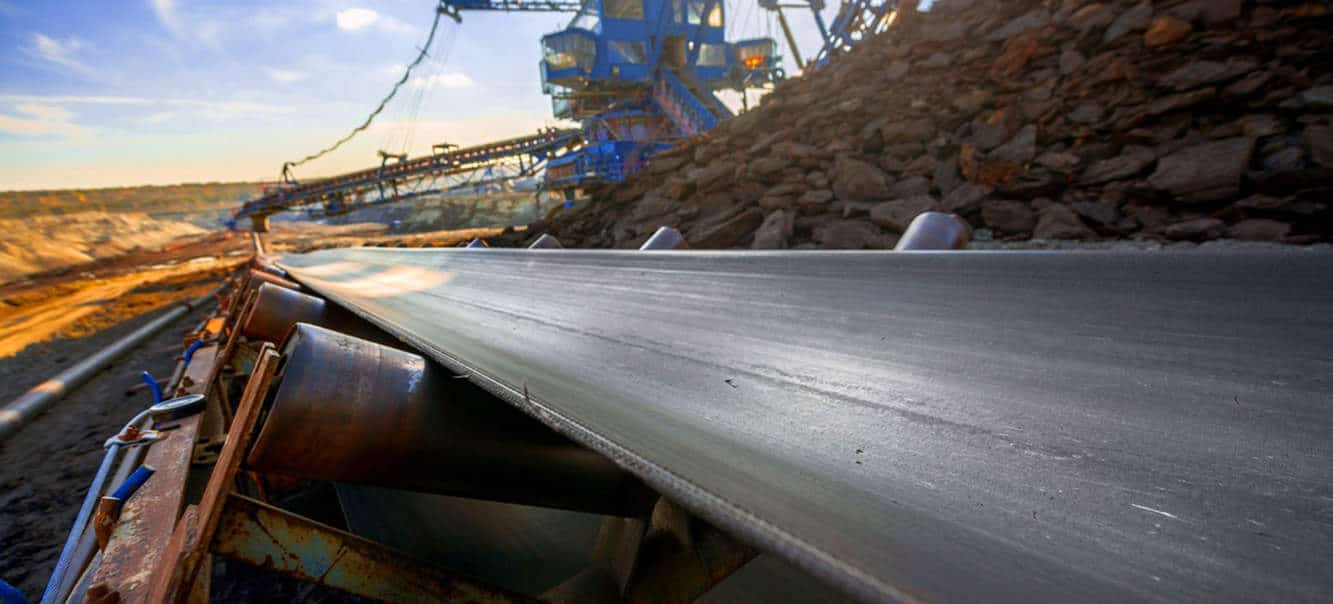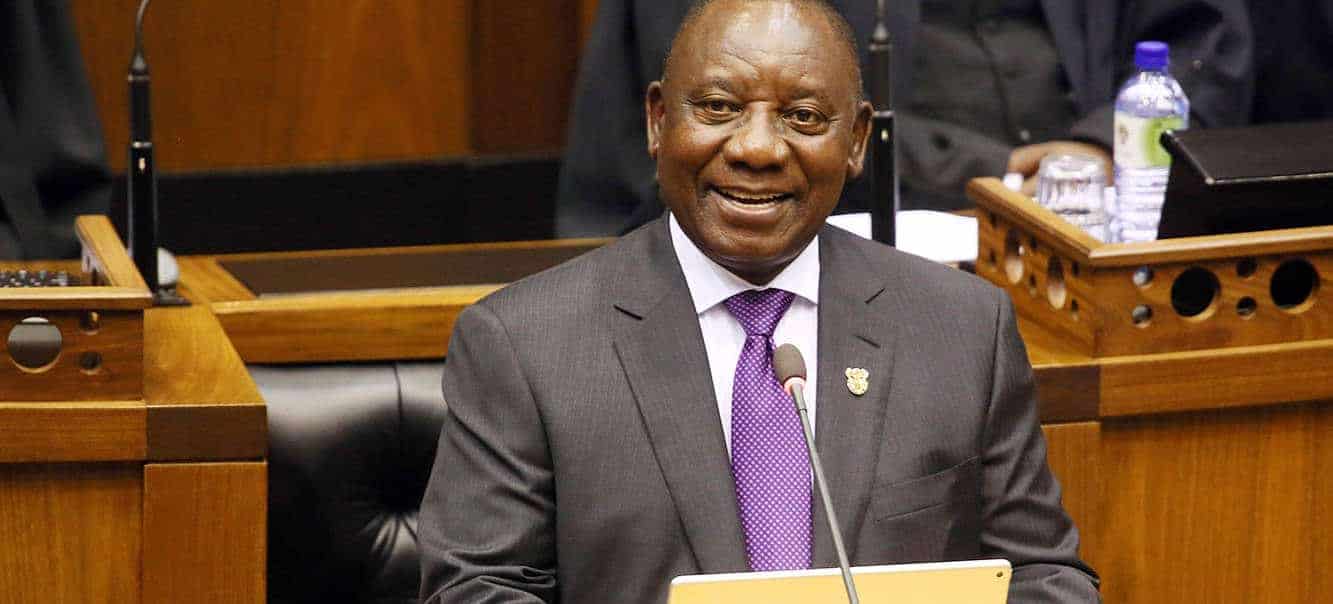SEIFSA CALLS ON COMPANIES WITH GREAT HEALTH AND SAFETY COMPLIANCE RECORD TO ENTER FOR THE SEIFSA AWARDS FOR EXCELLENCE
Johannesburg, 11 March 2018 – With employees being the most valuable assets of any successful business, companies should value their lives and invest heavily in ensuring that the environment in which employees operate is safe, Steel and Engineering Industries Federation of Southern Africa (SEIFSA) Chief Executive Officer Kaizer Nyatsumba said today.
“Employers have an obligation towards their employees to ensure that not a single life is lost at the workplace, regardless of how hazardous one’s work environment is. In fact, the more hazardous the environment, the more caution employers need to exercise to ensure the safety of their workers. The injury or loss of even one life at a plant or at a site is one life too many,” Mr Nyatsumba said.
It is against this backdrop, among others, that SEIFSA established the SEIFSA Awards for Excellence to encourage and celebrate companies which invest in the health and safety of their workers.
To celebrate companies that go out of their way to invest in the health and safety of their employees, SEIFSA will present the Health and Safety Award of the Year to a company with the best legal compliance record in Health and Safety or the lowest Lost-Time Injury Frequency rate in 2017.
Other awards that form the seven categories of the SEIFSA Awards for Excellence are:
- The Most Innovative Company of the Year, which will be awarded to a company that showed the best level of innovation in research and development or production in 2017.
- The Most Transformed Company of the Year Award will be received by a company that showed the highest transformation level in the composition of its Board of Directors, Executive Management and Managerial Team in 2017. This award category pits companies employing fewer than 100 people against those of similar size, and companies employing more than 100 companies against others of similar size.
- The Best CSI Award will be presented to a company whose corporate social investment programme/s in 2017 had a major impact on the lives of its beneficiaries.
- The company rated the highest in customer service performance in 2017 will receive the Customer Service Award of the Year;
- This is the Decade of the Artisan, and an award will be made to the company that trained the highest number of artisans in 2017;
- The Environment Stewardship Award will go to a company that has successfully implemented greening initiatives in its day-to-day business operations in 2017.
Mr Nyatsumba encouraged manufacturers operating in the metals and engineering sector to submit their entries for the seven categories before the deadline date of 29 March 2019. SEIFSA awards entrants will be assessed on their performance in the period 1 January 2017 to 31 December 2017. Participants can enter by visiting the SEIFSA Awards website (www.seifsaawards.co.za).
The Awards are open to all companies in the metals and engineering sector, and not only those that are members of Associations affiliated to SEIFSA.
Awards winners will be honoured at a ceremony that will take place at the IDC Conference Centre in Sandton on 24 May 2018.
Issued by:
Ollie Madlala
Communications Consultant
Tel: (011) 298 9411 / 082 602 1725
Email: ollie@seifsa.co.za
Web: www.seifsa.co.za
SEIFSA is a National Federation representing 23 independent employers. Associations in the metals and engineering industries, with a combined membership of 1600 companies employing around 200 000 employees. The Federation was formed in 1943 and its member companies range from giant steel-making corporations to formed in 1943 and its member companies range from giant steel-making corporations to micro-enterprises employing few than 50 people.
From the Chief Executive Officer’s Desk - March to April 2018
7 March 2018From the CEO's Desk
For reasons that that have to do with our past, the relationship between business and government in South Africa has taken different forms over the past few years. Following the dawn of democracy in 1994, the relationship between the two stakeholder groups has broadly taken at least three forms.
During the Mandela years, business was an enthusiastic partner which was immensely relieved that the country had made a peaceful transition from a period when South Africa was ostracized as an international pariah that had to contend with punitive economic sanctions to a democratic era. Generally, therefore, business fell all over itself to work with the Mandela government in an effort to redress some of the wrongs of the past. All Madiba had to do was to pick up the phone and dial the numbers of captains of industry of the time to get significant contributions made or pledged towards the construction of schools or clinics, for instance.
During the Thabo Mbeki presidency, strains appeared for the first time in that relationship. This followed the Mbeki government’s emphasis on transformation in general and black economic empowerment in particular, and on the adoption of a strong African – as opposed to rainbowish – identity for the country. That was the era when the first version of the Mining Charter was concluded and when various high-profile BEE transactions were concluded.
However, even as he came down hard on business when it came to transformation, nevertheless President Mbeki appreciated the strategic importance of business when it came to job creation and economic growth and surrounded himself with some of the wisest businessmen and women who served as his economic advisers.
During the Zuma presidency, a serious disconnect between business and government occurred for a variety of reasons, among them open hostility from the governing party towards business and the former’s poor management of the economy. In word and deed, business – like educated black compatriots who were labelled as “clever blacks” – was positively considered an enemy, with greater emphasis placed on the public sector, particularly State-owned companies, as strategic levers to deliver on job creation and, subsequently, on the need to create black industrialists.
It is during the Zuma presidency that organized black business walked out of Business Unity South Africa, which was formed during the Mbeki era, to form the Black Business Council.
Generally, then, business’s relationship with government evolved as follows over the years, with the former:
- Being fervent proponents, beneficiaries and enforcers of apartheid;
- struggling through the lean years of economic sanctions in the late 1980s, during which some – like Anglo American – began to review some of their policies and American companies operating in South Africa were forced by the Sullivan Principles to embrace and even nurture black talent;
- falling in love with the “rainbow nation” dispensation of Nelson Mandela and the opportunities that it heralded for it, with most of the established big companies enthusiastically partnering with Madiba in their corporate social investment initiatives;
- accepting the imperative of economic transformation by implementing BEE policies and concluding some high-profile BEE transactions during the Mbeki presidency; and
- being sidelined and becoming disillusioned with the Zuma administration and, consequently, taking the foot off the transformation pedal.
The five eras described above show that the Zuma era was very much an aberration. Throughout the period outlined above, business was acknowledged as a strategic stakeholder not only with a responsibility to obey the country’s laws, such as they were, but also with rights to articulate its own concerns to the powers that be. That much was acknowledged by the PW Botha, FW de Klerk, Nelson Mandela and Mbeki governments.
It was only during the Zuma years that business – especially “white business” – was myopically considered to be an enemy to be starved of oxygen. “White monopoly capital” was to be crushed.
Notwithstanding the unfortunate experience of the past nine years, business remains a legitimate – and strategic – stakeholder without which South Africa would not realize its true economic potential. After all, it is business that creates jobs, pays corporate taxes from the profits that it generates and employs men and women who go on to be taxpayers. The Government’s role in the economy is to create a climate conducive to growth, ensure policy certainty and coherence, and sell the country abroad as an attractive investment destination.
Therefore, even in present-day South Africa where significant portions of business are not as transformed as they should be, business has every right to make its voice heard on matters of importance to it and to lobby – transparently and not through backhanders and other such fraudulent inducements – for policies that it deems to be in business’s interests.
Perhaps more importantly, business needs to engage in a meaningful partnership with the elected government and to temper its own interests with those of the country. For instance, while some myopic business leaders may not fully appreciate the need for transformation, it is fundamentally in the country’s – and, by extension, their own – best interests that thorough-going economic transformation occurs expeditiously.
Therefore, while it is well within its right to advocate for certain policies that it considers necessary for growth, nevertheless business remains obliged to respect and observe all the country’s laws, and not only those with which it agrees. The extent to which business can be taken seriously and, therefore, have a higher degree of success with its lobbying activities depends very much on its perceived legitimacy.
Business’s collective social and political legitimacy will be considerably enhanced by the degree to which it embraces transformation, removes vestiges of racism that may remain hidden in its crevices and works with the elected government to combat corruption – including collusion – within its ranks. To this end, the CEO Initiative was a powerful example of the kind of meaningful partnership that is required between business and government.
As a corporate citizen, business has every right to make its voice heard on important matters of the day – especially on policy incoherence, destructive policies, corruption and poor governance – that will have negative economic and social consequences for the country. Like civil society, business needs to remain alert at all times, regardless of the government or individual in power at a given moment.
However, in so doing, business will be well advised to avoid falling into the trap of backing one or the other faction within the governing party or one party versus others in our body politic. As a collective, business must be above the political fray and stand only for principles, and not for individuals or parties.
Kaizer M. Nyatsumba
Chief Executive Officer
DIRECTORS, CEOs AND MANAGERS: STAYING CURRENT IS YOUR LEGAL AND ETHICAL DUTY
Labour Case Law: It’s all in the interpretation
Lawyers are the ultimate knowledge workers. Quality legal advice is dependent on access to accurate and timely legal information. As such, staying informed about legislative changes, new Government policies or recent case law is a vital part of the job. Thankfully, if you want in-depth analysis and true thought leadership, you should attend a SEIFSA Industrial Relations and Legal Services seminar, where you will:
- Save time: automatically and efficiently receive the latest information and research;
- Keep up to date: stay informed of recent developments in your areas of interest; and
- Better work output: your work quality will improve from having the latest information.
In South Africa with its militant workforce and volatile Industrial Relations environment, it assumes an even more important role. Your first reaction counts, and the wrong or even outdated advice can ruin relationships with workers and trade unions irreparably. The result is that trust can be broken for years to come, undermining any attempts at negotiations. Make no mistake, labour law and industrial relations are as personal as it gets. Don’t ever let the distance between your office and the shop floor mislead you.
The metals and engineering sector sits at the apex of industrial relations complexity. Your knowledge and consequent advice have an immediacy not necessarily felt in other industries. Through its many years of negotiations, SEIFSA has experienced it first-hand.
The SEIFSA team will present the most important cases and then practically dissect the consequences for industry. The team’s goal is to show you how to react when faced with similar situations. The team will demonstrate how to mitigate risk and role-play how these cases could have played out on a larger industrial relations scale.
The goal of SEIFSA’s one-day seminar will be to practically work through each case and show it as a real scenario. You will be given exercises that ask you to assume the role of the CEO, the HR Manager and, finally, the legal adviser. What are their expectations and how will you, in the role of Legal Adviser or Industrial relations Manager, respond, coordinate and communicate the response? You need to know the latest developments on:
- Dismissals for Strike-related misconduct
- Discrimination in employment
- Equal pay for work of equal value
- Defences against claims of unfair discrimination
- Role of Independent Contractors
- Section 197 transfers
- Changing terms and conditions of employment
- Liability of trade unions for the wrongful conduct of their members
- Legislative Developments
- National Minimum Wage Bill 31/2017
- Labour Relations Amendment Bill 32/2017
- Basic Conditions of Employment Amendment Bill 30/2017
Therefore, if you are an IR and/or HR Practitioner, a Legal Practitioner, a line Manager responsible for Industrial Relations or Human Resources functions, SEIFSA’s seminar must be considered as a “can’t-miss” event.
The goal of SEIFSA’s one-day seminar will be to practically work through each case and show it as a real scenario. You will be given exercises that ask you to assume the role of the CEO, the HR Manager and, finally, the legal adviser. What are their expectations and how will you, in the role of Legal Adviser or Industrial relations Manager, respond, coordinate and communicate the response? You need to know the latest developments on:
- Dismissals for Strike-related misconduct
- Discrimination in employment
- Equal pay for work of equal value
- Defences against claims of unfair discrimination
- Role of Independent Contractors
- Section 197 transfers
- Changing terms and conditions of employment
- Liability of trade unions for the wrongful conduct of their members
- Legislative Developments
- National Minimum Wage Bill 31/2017
- Labour Relations Amendment Bill 32/2017
- Basic Conditions of Employment Amendment Bill 30/2017
Therefore, if you are an IR and/or HR Practitioner, a Legal Practitioner, a line Manager responsible for Industrial Relations or Human Resources functions, SEIFSA’s seminar must be considered as a “can’t-miss” event.
Let’s look at an example. Take the key changes that deal with the employees of temporary employment services, employees on fixed-term contracts and part-time employees. In summary, the amendments are aimed at
- Limiting the use of labour brokers to genuine temporary needs. For workers earning below the Basic Conditions of Employment Act earnings threshold, if the worker is not performing a “temporary service” for the client – that is work lasting less than three months – then not only is the client deemed to be the employer of the labour-broker worker, but on the whole the worker is also entitled to be treated no less favourably than an employee of the client performing the same or similar work, unless there is a justifiable reason for different treatment.
- Employers can only employ somebody on a fixed-term contract or successive fixed-term contracts for longer than three months if the nature of the work is of a genuinely limited or defined duration, or the employer can demonstrate justifiable reasons for fixing the term of the contract.
Labour Law principles as set out in legislation are often broad, and the application of these principles is uncertain in most cases. The problem is that interpretation by courts is sometimes inconsistent.
SEIFSA’s Industrial Relations and Legal Services team, through case law and academic discussion papers, is able to unpack the practical application of legislation and its implications for your workplace.
The company-employee relationship is, like any other relationship, vulnerable to the vagaries of personal and communication style and perceptions of “the other”. The relationship also naturally creates a perception of “us” and “them”. This is why rules of engagement are absolutely essential in guiding professionals through a potential minefield. Your goal should be the long-term stability and potential growth of the business – this includes stability of the relationships between the employer and the employees.
Protecting this sometimes-fragile bond is part and parcel of SEIFSA’s core mandate.For that reason, we keep our members informed about recent developments in Labour Law. We invite you to leverage our skills and knowledge to ensure that your relationships with employees remain stable, calm, cordial and mutually beneficial.
SEIFSA CEO Interviewed On Business Day TV
SEIFSA IS ENCOURAGED BY IMPROVEMENT IN REAL GDP
Johannesburg, 6 March 2918 – The Steel and Engineering Industries Federation of Southern Africa (SEIFSA) welcomes the improvement in South Africa’s real gross domestic product (GDP) and is encouraged by it, SEIFSA Economist Marique Kruger said this afternoon.
Statistics South Africa reported that the country’s GDP grew by 3.1% during the fourth quarter of 2017, up from a revised 2.3% quarter-on-quarter increase recorded in the third quarter of 2017.
“Given the negative economic headlines at the end of 2017, which included a downgrade of the country’s credit ratings and the possibility of a further downgrade, this is certainly a welcome development. Moreover, the annual growth rate was recorded at 1.3% for 2017, higher than expected and higher when compared to the revised 0.6% increase recorded in 2016,” Ms Kruger said.
The Statistics South Africa data also show that the figures for the fourth quarter of 2016 were revised from negative to positive, indicating that South Africa was not technically plummeted into a recession at the beginning of 2017.
Ms Kruger said that a detailed analysis of the GDP data further indicated that the growth in GDP was largely underpinned by, amongst other sectors, the positive contribution made by the manufacturing sector. The industry grew by 4.3% quarter-on-quarter in the fourth quarter of 2017, following a 3.7% quarter-on-quarter growth in the third quarter of 2017.
Ms Kruger said a nuance of the performances of the various sub-sectors of manufacturing highlight the positive contribution made by some sub-components of the Metals and Engineering (M&E) sector. The best performers in the M&E sector in the fourth quarter of 2017 were the rubber and plastic products, the basic iron and steel, non-ferrous metal products, metal products and machinery sub-components.
“Generally, indications are that the M&E sector is still under tremendous pressure stemming from structural problems, volatility in input costs and international commodity prices. However, we are hopeful that improved business and consumer confidence in light of recent local political developments will carry through in 2018, thereby allowing business to take advantage of increased optimism,” Ms Kruger concluded.
Issued by:
Ollie Madlala
Communications Consultant
Tel: (011) 298 9411 / 082 602 1725
Email: ollie@seifsa.co.za
Web: www.seifsa.co.za
SEIFSA is a National Federation representing 23 independent employers. Associations in the metals and engineering industries, with a combined membership of 1600 companies employing around 200 000 employees. The Federation was formed in 1943 and its member companies range from giant steel-making corporations to formed in 1943 and its member companies range from giant steel-making corporations to micro-enterprises employing few than 50 people.
SEIFSA CELEBRATES BEST CORPORATES SOCIAL INVESTMENT PROGRAMMES
Johannesburg, 5 March 2018 – Businesses form an integral part of the communities in which they operate. Therefore, it follows logically that, like other responsible citizens, businesses should play a positive role and invest in the communities in which they operate, according to Steel and Engineering Industries Federation of Southern Africa (SEIFSA) Chief Executive Officer Kaizer Nyatsumba.
“Everything we do as the business community impacts directly, one way or the other, on the environment and communities in which we operate in. We should, therefore, commit and strive not only to counter the effects that our business operations may have on the environment and the surrounding communities, but also to give back to the members of those communities,” Mr Nyatsumba said.
He cautioned, however, that corporate social investment (CSI) projects should not be carried out as tick-box exercises. Instead, he said they should be meaningful and constructive and benefit community members in a sustainable manner.
To celebrate companies that go out of their way to invest in the environment and communities in which they operate, SEIFSA will present the CSI Award to a company whose corporate social investment programme/s in 2017 had a major impact on the lives of its beneficiaries.
Other awards that form the seven categories of the SEIFSA Awards for Excellence are:
- The Most Innovative Company of the Year, which will be awarded to a company that showed the best level of innovation in research and development or production in 2017;
- The Most Transformed Company of the Year Award will be received by a company that showed the highest transformation level in the composition of its Board of Directors, Executive Management and Managerial Team in 2017. This award category pits companies employing fewer than 100 people against those of similar size, and companies employing more than 100 companies against others of similar size.
- The Health and Safety Award of the Year will be offered to a company with the best legal compliance record in Health and Safety or the lowest Lost-Time Injury Frequency rate in 2017;
- The company rated the highest in customer service performance in 2017 will receive the Customer Service Award of the Year;
- This is the Decade of the Artisan, and an award will be made to the company that trained the highest number of artisans in 2017;
- The Environment Stewardship Award will go to a company that has successfully implemented greening initiatives in its day-to-day business operations in 2017.
Mr Nyatsumba encouraged manufacturers operating in the metals and engineering sector to submit their entries for the seven categories before the deadline date of 29 March 2019. SEIFSA awards entrants will be assessed on their performance in the period January 1, 2017 to December 31, 2017. Participants can enter by visiting the SEIFSA awards website (www.seifsaawards.co.za).
The Awards are open to all companies in the metals and engineering sector, and not only those that are members of Associations affiliated to SEIFSA.
Awards winners will be honored at a ceremony that will take place at the IDC Conference Centre in Sandton on 24 May 2018.
Issued by:
Ollie Madlala
Communications Consultant
Tel: (011) 298 9411 / 082 602 1725
Email: ollie@seifsa.co.za
Web: www.seifsa.co.za
SEIFSA is a National Federation representing 23 independent employers. Associations in the metals and engineering industries, with a combined membership of 1600 companies employing around 200 000 employees. The Federation was formed in 1943 and its member companies range from giant steel-making corporations to formed in 1943 and its member companies range from giant steel-making corporations to micro-enterprises employing few than 50 people.
SEIFSA WELCOMES IMPROVEMENT IN MANUFACTURING BUSINESS ACTIVITY
Johannesburg, 1 March 2018 – The Steel and Engineering Industries Federation of Southern Africa (SEIFSA) welcomes the continued improvement in overall business activity in the manufacturing sector as reflected in the ABSA Purchasing Managers’ Index, SEIFSA Economist Marique Kruger said.
The data showed that the PMI improved from 49.9 percent in January 2018 to 50.8 percent in February 2018. This is the first time since May 2017 that the indicator trended above the neutral level of 50, which is very encouraging for companies in the metals and engineering (M&E) sector.
“The PMI is an important lead indicator that sets the tone for how producers and relevant stakeholders in the manufacturing sector view the month ahead. The performance of the index can partly be attributed to improved business confidence in light of the growing optimism and business confidence following recent political developments in the country,” Ms Kruger said.
In terms of the various sub-indices, the strongest performer was the new sales orders sub-index registering 52.7 percent in February 2018, from 50.4 in January 2018, while the weakest performer was the inventories sub-index registering 44.9 percent in February 2018, from 47.3 percent in January 2018.
Ms Kruger said the Federation’s expectation is that next month’s data for the composite PMI indicator could improve further, provided that business confidence continues its positive trajectory.
Ms Kruger said SEIFSA was also hopeful that businesses in the M&E sector would take advantage of the general buoyancy, improving business prospects and positive expectations to increase production.
Issued by:
Ollie Madlala
Communications Consultant
Tel: (011) 298 9411 / 082 602 1725
Email: ollie@seifsa.co.za
Web: www.seifsa.co.za
SEIFSA is a National Federation representing 23 independent employers. Associations in the metals and engineering industries, with a combined membership of 1600 companies employing around 200 000 employees. The Federation was formed in 1943 and its member companies range from giant steel-making corporations to formed in 1943 and its member companies range from giant steel-making corporations to micro-enterprises employing few than 50 people.
SEIFSA DISAPPOINTED ABOUT LATEST PPI FOR INTERMEDIATE MANUFACTURED GOODS
Johannesburg, 28 February 2018 – The latest release on the Producer Price Index (PPI) for intermediate manufactured goods published by Statistics South Africa (Stats SA) today reflects a further deterioration in selling price inflation in the metals and engineering (M&E) sector, Steel and Engineering Industries Federation of Southern Africa (SEIFSA) said today.
The Stats SA data showed that the PPI for intermediate manufactured goods decreased to 1.5 percent year on year in January 2018, from the 3.2 percent recorded in December 2017.
“This a poor performance, especially given the four consecutive months of PPI increases for intermediate manufactured goods prior to December 2017,” SEIFSA Economist Marique Kruger said.
Also, given the volatility of input costs in the sector, the deceleration in the PPI data leaves manufacturers with little leeway to pass cost increases on to the market. Correspondingly, SEIFSA’s composite input cost index, which tracks the average cost structure for the M&E sector, was recorded at 1.4 percent in January 2018, up from 3.4 percent in December 2017.
Ms Kruger said it is important to maintain a positive differential in the selling price inflation and input cost inflation in order for the sector to stay attractive for existing and new investments.
“Hopefully, the PPI for intermediate manufactured goods will rebound against the backdrop of a continued improvement in business confidence, especially in light of recent developments in South Africa’s political landscape,” Ms Kruger said.
Issued by:
Ollie Madlala
Communications Consultant
Tel: (011) 298 9411 / 082 602 1725
Email: ollie@seifsa.co.za
Web: www.seifsa.co.za
SEIFSA is a National Federation representing 23 independent employers. Associations in the metals and engineering industries, with a combined membership of 1600 companies employing around 200 000 employees. The Federation was formed in 1943 and its member companies range from giant steel-making corporations to formed in 1943 and its member companies range from giant steel-making corporations to micro-enterprises employing few than 50 people.
SEIFSA WELCOMES CABINET RESHUFFLE, WITH SOME RESERVATIONS
Johannesburg, 27 February 2018 – The Steel and Engineering Industries Federation of Southern Africa (SEIFSA) has welcomed President Cyril Ramaphosa’s Cabinet restructuring, but expressed disappointment at the retention of at least two Ministers with unimpressive performance in their previous portfolios, the Federation’s Chief Executive Officer Kaizer Nyatsumba said this morning.
“We are particularly pleased with the reappointment of Mr Nhlanhla Nene as the Finance Minister and Mr Pravin Ghordhan as the Public Enterprises Minister. These are credible, hard-working men who have demonstrated high levels of integrity,” Mr Nyatsumba said.
The Federation also welcomed the appointments of Ms Lindiwe Sisulu as International Relations Minister, Mr Bheki Cele as the Minister of Police, Dr Zweli Mkhize as the Coorporative Governance and Traditional Affairs Minister and Mr Gwede Mantashe as the Mineral Resources Minister.
“Mr Mantashe has a long history in and good understanding of the mining sector, having once served as the General Secretary of the National Union of Mineworkers. We hope that his appointment into the Ministry will help solve the impasse between Government and the mining sector, which will bode well for the metals and engineering sector, given the strong symbiotic relationship that exists between mining and the two sectors,” Mr Nyatsumba said.
He said that while SEIFSA would have preferred an immediate reduction of the bloated Cabinet and the appointment of only men and women whose integrity is beyond question, nevertheless he understood that President Ramaphosa had to perform “a delicate balancing act” to please various constituencies within the governing party and its alliance partners, especially ahead of next year’s crucial general elections.
However, Mr Nyatsumba expressed “deep disappointment at the retention of some inefficient Ministers who had failed disastrously in their previous portfolio, such as the controversial Bathabile Dlamini”.
Mr Nyatsumba said SEIFSA called on all Cabinet Ministers, both new and old, to move with speed to improve policy coherence in Government and to fast-track an inclusive economic growth agenda in the interest of employment creation and poverty alleviation. He said it was important for the President and his Cabinet to understand that they were “servants of the people”, with their job being to serve the best interests of the country, and not their own selfish interests or those of their friends or families.
“Like many other business representatives, SEIFSA stands ready to work with the new leadership in the best interests of South Africa Incorporated,” he said.
Mr Nyatsumba said SEIFSA hoped that, in the event that the governing party obtains a majority in next year’s elections, President Ramaphosa would make good on his promise to reduce the size of the Cabinet significantly and appoint only men and women of integrity.
Issued by:
Ollie Madlala
Communications Consultant
Tel: (011) 298 9411 / 082 602 1725
Email: ollie@seifsa.co.za
Web: www.seifsa.co.za
SEIFSA is a National Federation representing 23 independent employers. Associations in the metals and engineering industries, with a combined membership of 1600 companies employing around 200 000 employees. The Federation was formed in 1943 and its member companies range from giant steel-making corporations to formed in 1943 and its member companies range from giant steel-making corporations to micro-enterprises employing few than 50 people.
SEIFSA ENCOURAGES TRANSFORMATION IN THE METALS AND ENGINEERING SECTOR
Johannesburg, 26 February 2018 – South Africa’s metals and engineering (M&E) sector is one of the country’s least transformed sectors of the economy. Against this backdrop, among others, the Steel and Engineering Industries Federation of Southern Africa (SEIFSA) established the SEIFSA Awards for Excellence not only to encourage companies operating in this vital sector of the economy to transform, but also to celebrate those companies that have are trailblazers when it comes to transformation.
“Transformation in the M&E sector has taken place in a painfully slow pace. We, therefore, believe that it is critically important that companies that have taken transformation of the industry seriously should be encouraged and hailed,” SEIFSA Chief Executive Officer Kaizer Nyatsumba said.
He said the Most Transformed Company of the Year Award will be received by a company that showed the highest transformation level in the composition of its Board of Directors, Executive Management and Managerial Team in 2017. This award category pits companies employing fewer than 100 people against those of similar size, and companies employing more than 100 companies against others of similar size.
Other awards that form the seven categories of the SEIFSA Awards for Excellence are:
- The Most Innovative Company of the Year, which will be awarded to a company that showed the best level of innovation in research and development or production in 2017;
- The Health and Safety Award of the Year will be offered to a company with the best legal compliance record in Health and Safety or the lowest Lost-Time Injury Frequency rate in 2017;
- Entries are also invited from companies whose Corporate Social Investment (CSI) programme/s in 2017 had a major impact on the lives of their beneficiaries;
- The company rated the highest in customer service performance in 2017 will receive the Customer Service Award of the Year;
- This is the Decade of the Artisan, and an award will be made to the company that trained the highest number of artisans in 2017;
- The Environment Stewardship Award will go to a company that has successfully implemented greening initiatives in its day-to-day business operations in 2017.
Mr Nyatsumba encouraged manufacturers operating in the metals and engineering sector to submit their entries for the seven categories before the deadline date of 29 March 2019. SEIFSA awards entrants will be assessed on their performance in the period January 1, 2017 to December 31, 2017. Participants can enter by visiting the SEIFSA awards website (www.seifsaawards.co.za).
The Awards are open to all companies in the metals and engineering sector, and not only those that are members of Associations affiliated to SEIFSA.
Awards winners will be honored at a ceremony that will take place at the IDC Conference Centre in Sandton on 24 May 2018.
Issued by:
Ollie Madlala
Communications Consultant
Tel: (011) 298 9411 / 082 602 1725
Email: ollie@seifsa.co.za
Web: www.seifsa.co.za
SEIFSA is a National Federation representing 23 independent employers. Associations in the metals and engineering industries, with a combined membership of 1600 companies employing around 200 000 employees. The Federation was formed in 1943 and its member companies range from giant steel-making corporations to formed in 1943 and its member companies range from giant steel-making corporations to micro-enterprises employing few than 50 people.


